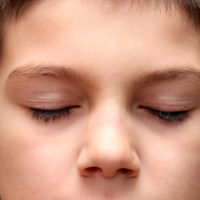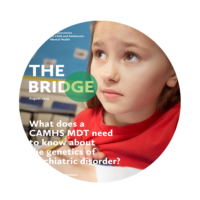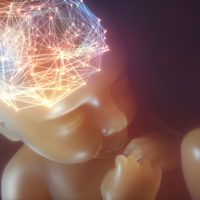Research digest
-

Cognitive processes mediate the post-traumatic stress trajectory in adolescents
A new study has shown that cognitive processes shape the early reactions of children and adolescents to traumatic stressors, and mediate the transition to persistent and clinically significant post-traumatic stress symptoms (PTSS).
Read more -

Mindfulness-based interventions improve depression and anxiety outcomes in youths
In 2019, Darren Dunning and colleagues compiled a Research Review for the Journal of Child Psychology and Psychiatry in which they evaluated, for the first time, the efficacy of MBIs on cognition and mental health in adolescents <18 years-of-age.
Read more -

Neuroscience Edition
Welcome to this Neuroscience themed edition of The Bridge.
Read more
The Royal College of Psychiatrists is currently promoting the neurosciences in its curriculum, for training Psychiatrists of the future. One of the many reasons for this is to develop more “Parity of Esteem” between physical and mental health conditions. -

-

Identifying imaging biomarkers in the neonatal brain
The past decade has seen great improvements in magnetic resonance imaging technologies, such that it is now possible to image the developing brain in utero. In 2018, Dafnis Batalle and colleagues compiled an Annual Research Review for the Journal of Child Psychology and Psychiatry, where they evaluated the current status of neuroimaging research in neonates and paediatrics to determine the origins of neuropsychiatric and neurodevelopmental disorders.
Read more -

Coupled delta-beta wave activity might predict social anxiety in children
Researchers from McMaster University, Canada, have examined whether individual differences in salivary cortisol levels at baseline and parent-reported social anxiety levels are associated with resting, coupled delta–beta frontal wave activity.
Read more -

Neuroscientific insight can boost learning: neuro-fact or neuro-fiction?
Earlier this year, Professor Michael Thomas and colleagues compiled an Annual Research Review for the JCPP, highlighting the contributions that neuroscience can make to understanding learning and classroom teaching. Here, we summarise their main findings, the current challenges to the field and the future of educational neuroscience.
Read more -

A mother’s touch: a key player in fine tuning the function of our genome
There is debate as to the importance of genetics in determining our behaviour. This debate has become enshrined perhaps due to the early focus of genetics on searching for DNA variation in our genome (termed a polymorphism) that affected protein structure, the hypothesis being that such a protein variant would not be working optimally in our body throughout our life.
Read more -

What does a CAMHS MDT need to know about the genetics of psychiatric disorder?
Our knowledge of the genetics of psychiatric disorders has increased rapidly in recent years. Discover what has been learnt, focusing on some of the psychiatric disorders commonly seen in CAMHS, before going on to discuss how these findings may be relevant to clinical practice.
Read more -

Psychological resilience in young people
Having spent a lot of time on a camp bed in a paediatric ward with young people and their families, some of whom were inpatients for weeks on end and facing huge physical challenges, it has made me wonder a great deal about the elements of psychological resilience in young people.
Read more